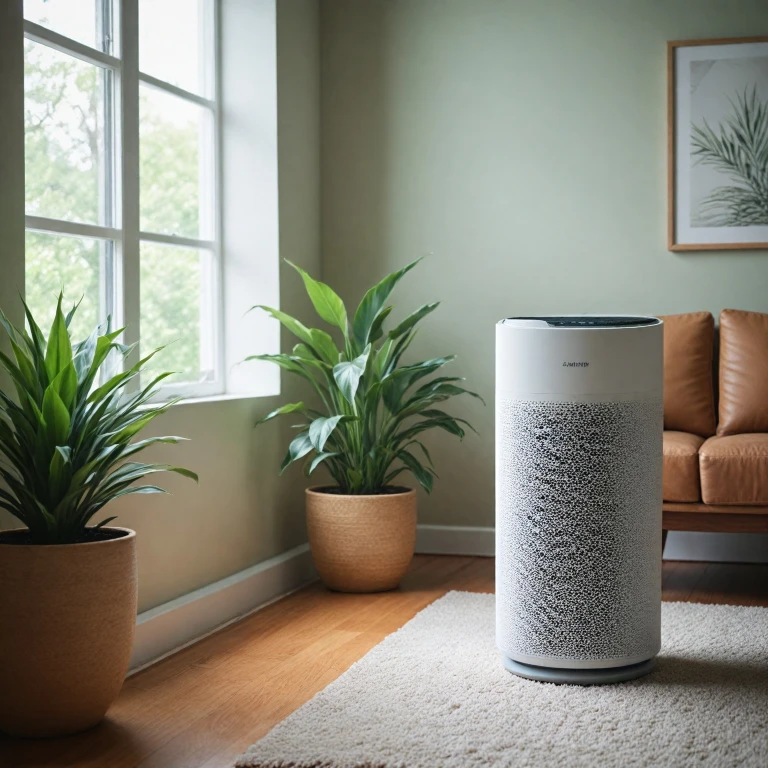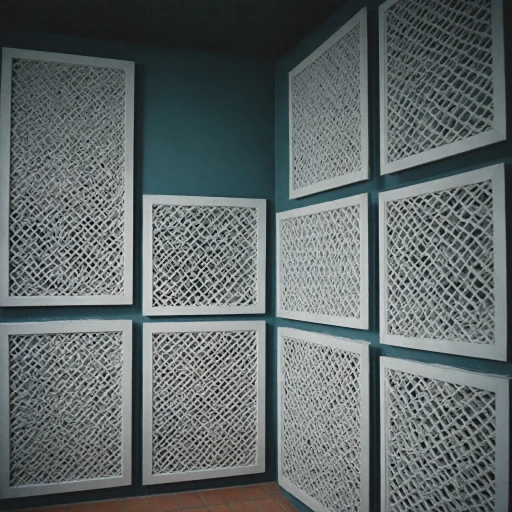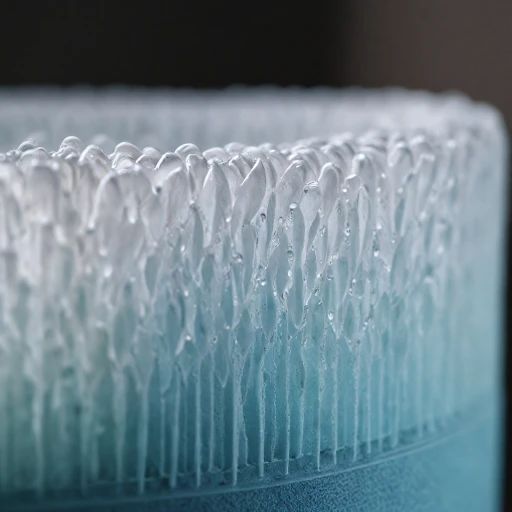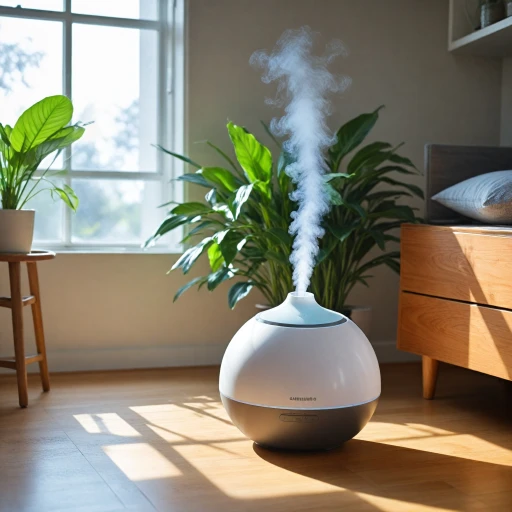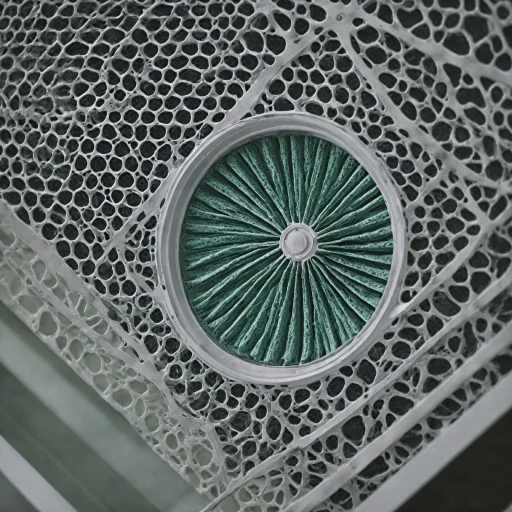Understanding Different Types of Air Filters
Recognizing the Diversity in Air Filter Options
When it comes to selecting the appropriate filters for your air purifier, understanding the various types available is crucial. Each filter type has its unique function and benefits, directly impacting the air quality in your space. Here's a breakdown of some common filter types that you may encounter when exploring options on platforms like Amazon or during a sale.
- HEPA Filters: Known for their true HEPA capabilities, these filters are designed to trap fine particles as small as 0.3 microns. They are highly effective in removing allergens, dust, and even smoke particles from the air, ensuring a cleaner and safer environment.
- Activated Carbon Filters: These filters excel in absorbing odors and chemicals present in your room. They are often recommended if you have strong odors or pollutants in high concentrations, as they can neutralize these quickly.
- Pre Filters: Usually used in conjunction with other purifier filters, pre-filters capture larger particles such as hair and dust, extending the life of more specialized filters and improving efficiency. Fan settings on purifiers can also be adjusted based on the type and size of the room.
The selection of an ideal filter depends not only on the specific air contaminants personal needs but also on factors like room size and sensitivity to allergens. Budget is another consideration, as price variations between regular and sale periods can impact the choice of purifier or filter replacements. To guide you further, consider consulting resources like choosing the right filters for your humidifier that delve into the compatibility and effectiveness of these filters in more detail.
How to Determine the Right Filter for Your Needs
Identifying Your Air Purifier Needs
When it comes to selecting the right filter for your air purifier, several factors must be considered. Firstly, it's essential to determine your primary concern, such as removing allergens, eliminating smoke, or combating strong odors. Each type of filter addresses different issues, so understanding your requirements is the first step in choosing an effective solution.
Consider the room size where the air cleaner will be used. The capacity of purifier filters to clean the air effectively depends on the square feet of the space. Review the manufacturer's specifications to ensure the air purifier you choose is suitable for the room size. For instance, a high-powered purifier with a true HEPA filter may be necessary for larger rooms to ensure optimal air quality.
The frequency of filter replacements should also be factored into your decision. Some filters, like the pre filter, require more regular replacements. Consider the maintenance and replacement costs associated with each type. Assessing the long-term price regular versus sale price scenarios will give you a clearer picture of ongoing expenses.
Additionally, examine the setting options available on various models. Purifiers with adjustable fan settings, from high to regular, provide flexibility based on your needs. On platforms like Amazon, customer reviews can offer insights into the efficiency of these features, helping guide your purchase decision.
The top considerations include filtering true particles like dust and pollen, among others. Weigh these factors carefully to ensure you select a purifier filter that caters to your specific needs and fits within your budget, ensuring your home has the cleanest possible air.
The Role of HEPA Filters in Air Purification
The Importance of HEPA Filters in Air Purification
When it comes to air purification, HEPA filters are often regarded as the gold standard. These filters are designed to capture particles as small as 0.3 microns, which includes dust, pollen, and even some bacteria. This efficiency makes them a crucial component in improving air quality in your home or office.
HEPA filters are commonly found in many air purifiers on the market today, including those available on platforms like Amazon. The term 'True HEPA' is used to denote filters that meet specific standards, ensuring they capture at least 99.97% of airborne particles. This is particularly beneficial in settings where high air quality is essential, such as in rooms with individuals who have allergies or asthma.
While the initial price of an air purifier with a HEPA filter might be higher than other models, the benefits in terms of cleaner air can outweigh the cost. Regular replacement of the HEPA filter is necessary to maintain its efficiency. The replacement filter schedule can vary depending on the model and usage, so it's important to check the manufacturer's guidelines.
For those looking to save on costs, exploring options like finding a used Honeywell True Air Purifier can be a viable option. These models often come with pre filters that help extend the life of the HEPA filter by capturing larger particles before they reach the main filter.
In conclusion, investing in a HEPA air purifier is a smart choice for anyone serious about maintaining high air quality. Whether you're dealing with smoke, dust, or other pollutants, a HEPA filter can be a key component in keeping your indoor environment clean and healthy.
Activated Carbon Filters: Tackling Odors and Chemicals
A Versatile Solution for Odors and Chemicals
Activated carbon filters stand out in the world of air purification, especially known for their ability to tackle odors and volatile organic compounds (VOCs). These filters aren’t just about trapping particles; they excel in absorbing and neutralizing unpleasant odors, smoke, and chemicals, enhancing the overall air quality in your room. Activated carbon works through adsorption, a process where pollutants adhere to the surface of the carbon. This makes these filters an excellent choice for homes where cooking smells, tobacco smoke, or pet odors are a concern. A pre filter can help prolong the activated carbon filter's effectiveness by trapping larger particles, allowing the carbon to focus on chemical absorption. When selecting an air purifier with activated carbon, consider the room size and your specific needs. Units offering a true HEPA filter alongside activated carbon can provide comprehensive air cleaning by trapping both particles and gases. Many units available on platforms like Amazon have features that allow you to choose the right setting according to your room's air quality. Despite the versatility of activated carbon filters, regular maintenance and timely replacement are crucial for maintaining high performance. Be sure to monitor the filter replacements schedule of your particular air purifier model, as many manufacturers suggest a replacement filter every three to six months, although this can vary. Keeping an eye on sales and price drops can also ease the financial burden of maintaining your purifier filters, as the price sale often offers a reduced price compared to the regular price. High-efficiency activated carbon filters complement true HEPA filters, creating a multi-layered approach in your air cleaner system, ensuring that both particles and gases are effectively managed. Whether addressing allergens or improving overall indoor air quality, combining various filters can cater to diverse purification needs, making your home environment healthier and more enjoyable.Maintenance and Replacement of Air Filters
Extending the Life of Your Air Filter
Maintaining your air filters is a critical part of ensuring optimal performance and longevity of your air purifier. Whether it's a true HEPA, activated carbon, or any other type of filter, regular checks and proper maintenance can prevent the hassle of frequent replacements and high expenses. Start by regularly vacuuming or gently washing pre filters. These components catch larger particles like dust and pet hair, preventing them from reaching the main filters, such as HEPA filters, which can be more expensive to replace. When Should You Replace Filters? The replacement timeline for air filters greatly depends on the type and usage:- Pre filters: Often need cleaning every 2-4 weeks and replacement every 3-6 months.
- HEPA filters: Typically require changing every 12-18 months, depending on smoke, room size, and air quality.
- Activated carbon filters: Usually replaced every 3-6 months if they're tackling odors and chemicals extensively.
Innovations in Air Purifier Filters
Emerging Technology in Air Purification
The air purifier industry is continually evolving, with new filter technologies appearing in response to growing consumer demands for better air quality. These innovations aim to enhance the efficiency of purifiers in removing particles, smoke, and other airborne pollutants from room environments. Let's explore some key advancements currently making waves in this domain.
- Smart Sensors: Modern air purifiers are often equipped with smart sensors that automatically adjust the fan speed and purifier settings based on the detected air quality. This technology helps maintain optimal filtration by responding to real-time changes, enhancing your purifier’s efficiency.
- Advanced HEPA Filters: While traditional HEPA (High-Efficiency Particulate Air) filters are well known, advancements are continuously being made to increase their capabilities. True HEPA filters capture even finer particles, sometimes as small as 0.3 microns, ensuring top-notch performance in removing dust, pollen, and smoke particles. As a result, the demand for reliable HEPA air purifiers with high-efficiency filters is on the rise.
- Combining Technologies: Many air purifiers now integrate multiple filtration technologies in a single unit. For example, combining activated carbon filters with HEPA filters targets both particle removal and odor control, making them suitable for homes where both air quality and air freshness are concerns.
- Eco-Friendly Materials: Manufacturers are increasingly prioritizing eco-friendly materials for filter replacements. These innovations not only improve the sustainability of the purifiers but also align with consumer expectations for environmentally conscious products.
With these innovations, the air purifier market continues to develop, striving for better performance and more convenient maintenance. As you explore your options, consider the regular price and sale price, along with the quality and features of the filters, especially when evaluating options on platforms like Amazon to ensure a wise investment in your home’s air quality.
